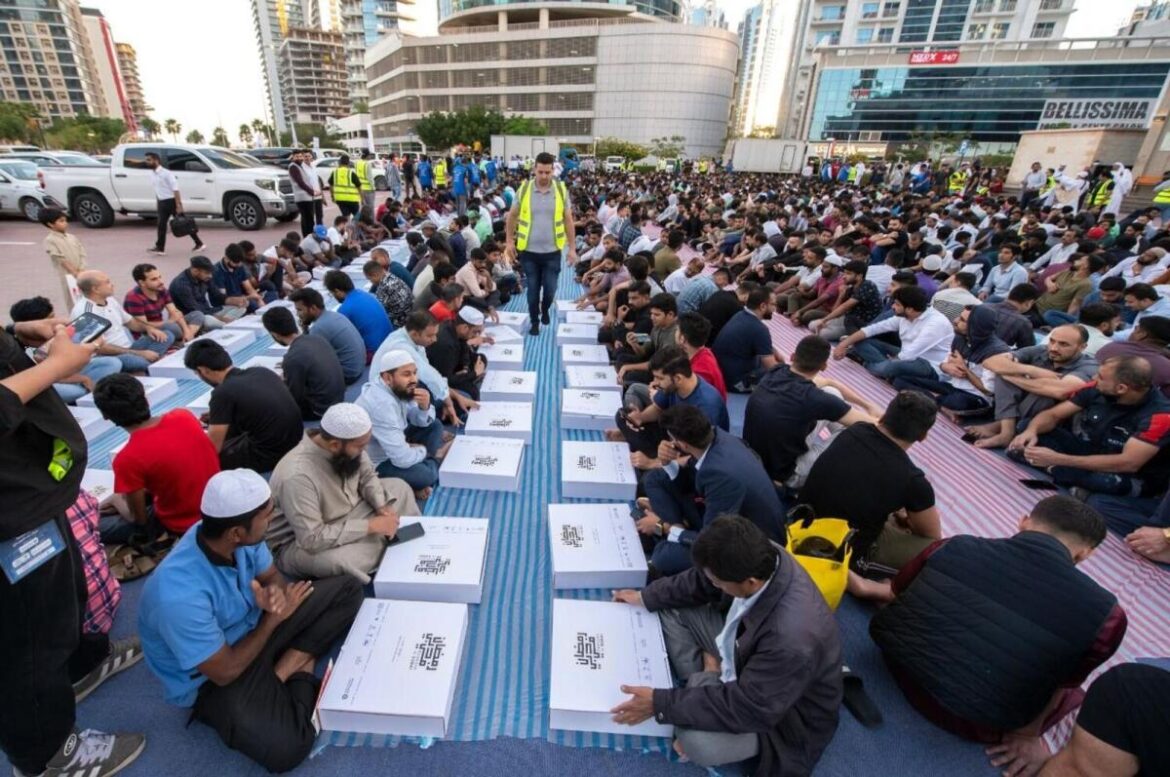By Staff Reporter
The holy month of Ramadan has reached its midway mark in the UAE. Today, March 25, marks 15 days since the beginning of the fasting month, with just half a month left for Eid. The festive occasion will fall upon April 9 or April 10, depending on the moon sighting.
Apart from the eager anticipation for a long weekend and as Eid Al Fitr comes closer, residents in Dubai have observed changes in their environment, as well as in their daily routines.
From time flying by quickly to preparing for the last 10 holy days of Ramadan, here is how things are changing for residents as the days pass by.
Changing weather
With spring’s arrival in the country, the mercury has shifted compared to when Ramadan began. Just two weeks in and the UAE has experienced rains due to unstable weather conditions, leading to fluctuations in temperatures and humidity.
For the past two days, the National Centre of Meteorology has issued alerts for dust storms, with fresh to strong gust of winds expected in some parts of the country.
Afsha Noori, a boutique owner living in Dubai, has noticed a change in temperatures. “Although we started Ramadan on a breezy note, it has gotten hotter during the day. The rains in between helped a bit, but now with the dusty weather, it seems to be going back to a warmer environment.” She and her tailors have to now keep the AC on during the day, contrary to them using only fans when Ramadan began.
She has also started calling them to work towards the evening due to longer fasts and the effect it has had on their usual routine.
For some others though, despite the warmer temperatures, this Ramadan has been different from when it would be observed during peak summers.
Nazahah Fathima, a 22-year-old Dubai resident, who uses public transport to travel to her workplace said: “Ramadan as always has time flying. The weather not being so hot is such a blessing especially when you’re fasting. I take the metro to and from work and not having the sun drain up all my energy is such a luxury.”
Duration of fasts
As the month goes by, duration of fasts in the UAE have been increasing. The first fast lasted for 13 hours and 29 minutes. Towards the end of the holy month, residents will be fasting up to almost 14 hours. For those fasting on March 25, the duration of fasts has reached around 13 hours and 45 minutes.
Residents have been waking up earlier to have suhoor and waiting a few minutes longer on the dining table to break their fast.
Talal M., an Indian expat in Dubai, has been waking up earlier. “I usually have suhoor and then start getting ready for work as I have to reach my office by 8am. These days I have been waking up by 4am instead of 4.30am to prepare my meals.”
The slightly longer duration has had an impact on some school students too. Nazahah Fathima’s sister wakes up earlier to have suhoor, which leads to her being tired during school hours. “The reduced hours help a lot. But of course, as the days pass by and the time lengthens, it can get a bit tiresome especially during exam season.”
Holy days approaching
The last 10 days of Ramadan hold major significance for Muslims around the world. It is during this time that faithful offer Qiyam-Ul-Layl prayers, which are held late at night and span 1.5 hours to 3 hours in different mosques across the city.
For Dubai resident Zuhara Safa, managing her sleep schedule has been the challenging part of Ramadan. “With the last 10 days approaching, I’m trying to get more sleep during the day when I come back from work so that I’m wide awake during the prayers at night.”
A time during which Muslims believe rewards are multiplied, Zuhara has been revising her prayers and religious supplications to put into practice during the last 10 days.
Eid Al Fitr
With Eid almost two weeks away, preparations have already begun among residents. From glamorous outfits to making food in advance, the festive craze is slowly hitting the city.
Afsha Noori and her tailors are swamped with work. “We have started getting orders from people for Eid clothes. Our shop remains open till 3 in the morning.”
Many of her customers are getting their clothes stitched as they prepare to travel back to their home countries for Eid.
In other homes, food preparations have already begun. Due to the hectic nature of Eid days, many prefer to freeze and keep treats like samosas. “Shopping for Eid has already begun in our home due to the massive sales offered by retailers. We are stocking up in advance.”


